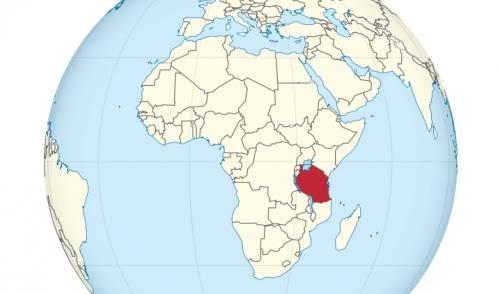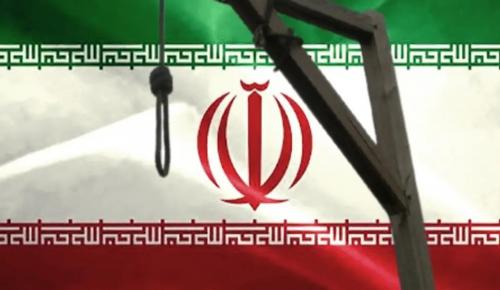05 Settembre 2018 :
EXEGESIS
«Spes contra spem»: hope for the unexpected.
Thoughts on Romans 4, 18
By Father Padre Guido Bertagna
“The essence of this letter is: to destroy, eradicate and annihilate all wisdom and all righteousness of the flesh ... God wants to save us not by virtue of our per- sonal justice and wisdom, but by an extraneous, who doesn’t originate from us nor grows by our merit, but comes to us from outside; that does not come from our land, but comes from heaven.
It is therefore necessary to teach a justice that comes absolutely from outside, and it is external justice. Therefore it must first be extirpated our own justice, which is very intimate in us “.
Writing between 1515 and 1516 his commentary on the Letter of St. Paul to the Romans, Luther elaborates thoughts marked by a radical turn, expressed in ways and language intentionally provocative, scratchy. His fundamental ideas: the sin that remains and marks the life of everyone and the extrinsic justice, which comes from outside, unavailable to us. We must become sinners. Not in the sense of the usual daily sequence of the failings and sins, we could say, but sinners aware of radical sin, the one that precedes all the individual disordered acts, that fundamental mark that deeply marks the existence of everyone: Luther calls it concupiscence. We, he repeats, are curved and bent on ourselves (curvitas) and it is precisely by recognizing this wicked inclination that we can open ourselves to the justice and salvation that come from God.
Freely:
“By virtue of his faith, which is the faith of Christ, united with his death on the cross and accepting the condemnation of his sin, he [the sinner] is intimately trans- formed and justified before God.”
Therefore, according to Luther, justice does not result from rightly operating, as Aristotle teaches, but precedes it, and founds it. And along the way, it makes us taste hope:
“Is the man with this perfectly right? No, but he is both sinful and just (simul peccator et iustus); a sinner in reality, but just, thanks to the consideration (in which he is held) and to the certain assurance of God of wanting to free him from sin until complete restoration, and so he is perfectly healthy in hope (in spe); in reality (in re), however, he is a sinner; yet he possesses as a gift the first fruits of justice, so that he always seeks ever further, always, in his conscience, to be just “.
In the Letter to the Romans Paul starts from Abraham. His experience and, above all, the understanding that we are allowed to have of God and the salvation that comes from God, through a better understanding of what Abraham has lived and made us understand along his path and his complex, sometimes dramatic, experience of God.
In the fourth chapter of the Letter to the Romans, the themes that emerge in Paul’s words are those, connected to each other, of “promise” and “inheritance”. Particularly in the first verses, Paul insists on the exemplariness of Abraham’s life and journey to reaffirm that God’s inheritance and promises are independent of the Law and its observance. Decisive is the faith, the open and trusting welcome of the salvation that God offers for free. Therefore, not only sons who follow the words and precepts of the Law, who seal this observance in the so-called “covenant of the flesh”, circumcision, derive from the stock of Abraham. As narrated in a famous passage from the Book of Genesis:
God said to Abraham: “On your part you must keep my covenant, you and your descendants after you, from generation to generation. This is my covenant that you must observe, covenant between me and you and your descendants after you. Let every male be circumcised among you: you will allow yourself to circumcise the flesh of your foreskin, and this will be the sign of the covenant between me and you” (Gen 17, 9-11).
The descent from the Abraham stock is therefore plural, reaches many people and takes place thanks to faith. Abraham himself, first, was declared righteous by God, Paul insists, before his circumcision.
In the faith of Abraham, according to Paul, we are invited to recognize the kind of faith that God asks to the man: He had faith hoping against all hope and thus became a father ... it is faith, therefore, that makes life fruitful, that makes God’s promises alive and available.
The hope of which Paul speaks, in the wake of the entire biblical journey, is not a generic optimism, an open and positive disposition towards life or, as they say, a “positive thinking”. There is more, in fact, much more. It is a hope that makes its way and is delineated with truth and seriousness right where there is nothing left to do, where everything is lost and where - on the contrary - the disconcerting, pro- found doubt makes its way, and its inaggirable question: and if I had done everything wrong? Here begins the adventure of hope: other situations or other attitudes of individuals are said: optimism, resources, chance, creativity, at the limit, courage (or luck)...
Abraham had before him (and within himself) his desert of life. A life without children, in fact, without descent, is a life without a future. A life that remains desert- ed. Accursed. yet he believed, without making illusions on himself. He sent back to the sender the incredulity towards which he was pushed by a lucid and dispassionate look on his situation marked by irremediable impotence. He entrusted himself entirely to God, to his creative and resurrecting power.
Abraham is not an “incurable” optimist nor an enthusiast. It is not of those who see the bottle always half full. On the contrary, he looks clearly at his “terminus”, at the nothingness of his forces and at the death that reigns in Sara’s atrophied womb (ede nenekromenon ... ten nekrosin tes metras Serras): the story of the Book of Genesis testifies of his bitter awareness. The bitterness of those who laugh (inside themselves) so as not to cry:
Then God said to Abraham, “As for Sarai your wife, you shall not call her name Sarai, but Sarah shall be her name. I will bless her, and indeed I will give you a son by her. Then I will bless her, and she shall be a mother of nations; kings of peoples will come from her.” Then Abraham fell on his face and laughed, and said in his heart, “Will a child be born to a man one hundred years old?And will Sarah, who is ninety years old, bear a child?”
(Gen 17,17).
Like Abraham, his wife Sarah, faced with the Lord’s promise of motherhood, shows the same burning self-irony that is expressed in a desperate laugh of disillu- sionment:
…Now Abraham and Sarah were old, advanced in age; Sarah was past childbear- ing. Sarah laughed to herself, saying, “After I have become old, shall I have pleasure, my lord being old also?” And the Lord said to Abraham, “Why did Sarah laugh, say- ing, ‘Shall I indeed bear a child, when I am so old?’ “Is anything too difficult for the Lord? At the appointed time I will return to you, at this time next year, and Sarah will have a son.” Sarah denied it however, saying, “I did not laugh”; for she was afraid. And He said, “No, but you did laugh.”
(Gen 18,12).
Isaac: his name, yishaqel, means “he [God] laughed”, or also “laughter” (from sahaq: laughing, smiling, laughing, joking). Isaac, son of Abraham and Sarah, testi- fies, beginning with his own name, that God has assumed their bitterness and has changed the sign of that desperate smile, turning it into a smile of life. God inter- vened where human hope no longer saw any road. He laughs well who laughs last, it would come to comment.
For Paul, the faith of Christians is like that of Abraham, founded on the Easter of Jesus of Nazareth. He expresses it at the end of chapter IV of the Letter through the quotation of an ancient profession of faith: “He who was delivered to death for our sins and was resuscitated for our justification” (Rom 4:25).
In Paul’s interpretation, the Jewish perspective had closed Abraham in the tight meshes of the doctrine of merit and retribution, making him the prototype of the observer of the divine law. An absolute and practical fidelity, his, demonstrated above all in the promptness to the sacrifice of his son Isaac (Gen 22): a life marked by obedience and by so many meritorious works.
Instead Paul wants to recover Abraham as the father of all believers, father, that is, of those who do not rely on their observance, on their meritorious (or devoted) services, but only on God and his saving initiative moved by the free love.
Moreover, he was justified before being circumcised, when he was still uncircum- cised, when he still lacked that sign in the flesh that constantly testifies the covenant between God and Israel and the vocation to be holy people that belongs to his Lord. The circumcision is not annulled by Paul but reduced: not a source of justice but only its confirmation.
“He received the sign of the circumcision as a seal of justice, consequential from the faith, already obtained when he was not yet circumcised,”
reads Rom 4:11.
Left to itself, the Law goes in the opposite direction to salvation: it can in fact lead those who rely on the affirmation of their self and a justice that is expressed in the ability to observe and do just works. In a word, a self-sufficiency that for Paul speaks of death, death of the relationship with others and with God, exclusive clo- sure in themselves.
At this point of the reflection, complex and intense, Paul inserts the contrast between two irreconcilable logics: the logic of gratuitousness (kata charin) and the logic of the due (katà opheilema).
By renouncing to confide in the observance of the Law, in the due service based on one’s correct action (according to the Law), Paul invites the believer to enter the logic of gift, of gratuity, which alone gives meaning and founds existence.
In this way we go beyond every exclusivity and every privilege: “faced with the extraordinary initiative of God - comments G. Barbaglio - Jews and pagans are equated: both are in need of the salvation offered as gift and are under the sign of the call to believe”
(The Letters of Paul, II, Rome 1980, 259).
The perspective of faith makes sure that the promised goods are preserved in their universal character (they are not valid only for Jews but also for pagans). God makes all those who rely on him righteous.
In whom did Abraham believe? Abraham believed “before God”, his faith refers directly and personally to God, to God “who gives life to the dead and calls into existence the things that do not exist” (Romans 4:17), to the God who puts Himself at the service of life, as the second of the Eighteen Blessings of the Jewish Prayer also says: “Blessed be you, IHWH, who give life to the dead”.
In what situation did Abraham live his faith? He had to sustain a reality in explicit and open contradiction with what promises faith. Faith produces in us, creatively, the perception of God and his presence, alive, operating, but what Abraham saw and experienced in his daily life was the opposite...
Paul reinterprets the story of Abraham in the light of the of the Easter of Jesus and the Easter of Jesus in the light of the history of story of Abraham who announced it, somehow prophetically anticipated it. Jesus of Nazareth crosses his passion and his death - a death as rejected, cursed - trusting only in the Father. Death, that death on the cross, appeared as the most evident and irreparable denial of his words, of his teachings that had for a while fascinated the crowds and made them know a new, possible, hope.
In light of this, the resurrection is not a generic and easy happy end but rather the seal of truth that the Father definitively puts on the Son, on his whole history and on the way in which he lived it by donating himself.
par ‘elpìda ed’elpidi epìsteusen, that is: against all hope, believed in hope (it can also be read as: it was founded on hope).
Why does this expression of Paul in the context of the dramatic story of Abraham acquire in the journey and in the commitment of “Hands off Cain” such a high importance and evocative capacity?
Why: “against” or “beyond” all hope (which appears, then, immediately a hope above all stubborn, at the limit of unreasonable)?
Because hope, this hope, sees what others do not see. If it does not see it yet, it hears it. It feels in advance, feels for those who are not yet, nor could they be, on the same wavelength. This hope shoots the cards with respect to what it is usually thought to be really worth, opens new perspectives of the meaning of life: the Christian experience that is based on the Easter of Jesus of Nazareth, known the theologian J. Moltmann, “is hope, it is orientation and moving forward and therefore also revolutionizing and transforming the present”
(Theology of Hope, 1971, 10).
This hope contradicts the present, does not bypass it taking refuge in too easy utopias, does not propose an escape but, if anything, an exodus.
Exodus toward a land that is not yet known but already inhabits the intimate. In the light of the promise of this land, the protest for the present, for the contradic- tions, the sufferings and the injustices that mark it, takes shape and depth. This hope gives substance to the protest. It is hope that, in turn, needs bodies that make it pre- sent in the actuality of history and needs a thought that gives a profile and a place to its restlessness, to its questions.
In this light, Abraham - who hoped against all hope - becomes a luminous figure in Paul’s reading, a reference figure for understanding how hope opens up new and unexpected paths, even unthinkable. Against all evidence. Abraham opens roads, therefore. But everyone must then take the same step, run the same risks, cross the same deserts, the same nights, towards his exodus. Nobody can do this for us: we do not learn it, if we do not do it.
In his study The Epistle to the Romans, Karl Barth notes: “Abraham finds where he obviously has nothing to lose - he connects where everything is manifestly lacer- ated - he is where he can not be. He says “yes” where clearly “no” remains from the top and from the bottom. And this is precisely his faith: faith that “hopes without hope”, the step forward, above the particularity of man and the extraneousness of God, above the visibility of the visible and invisibility of the invisible, to the above the subjective and objective possibility - where only the Word of God can sustain it. We see Abraham taking this step. We see? No, we only see that all his other steps are aimed at this step, they come from this step. We do not see him doing this step”.








